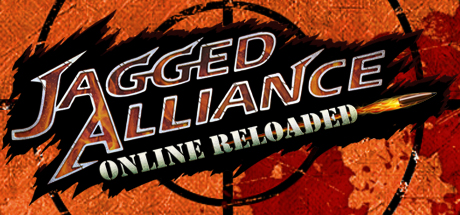- ARPDAUPosted 13 years ago
- What’s an impressive conversion rate? And other stats updatesPosted 13 years ago
- Your quick guide to metricsPosted 13 years ago
How Facebook Will Kill Steam
Back on 13 May, Nicholas wrote a post slamming the Facebook game N.O.V.A. ELITE (Minimum specifications on a Facebook game? Are NOVA mad?) for having a minimum specification, control layout sheet and loud music. All cardinal sins, he argued, of a social game. I disagreed with the post and Nicholas kindly invited me to write this response.
Now, I’m not writing because I think N.O.V.A. is a great example of a game experience – although I did rather enjoy playing it – but because dismissing Gameloft as mad uses the application of dangerous ‘conventional wisdom’ to a delivery platform which is fast evolving and not fully understood.
Let me expand on that: N.O.V.A. is a core FPS game on a social network. Social networks have been great at delivering non-skill, casual, persistent world games a la Farmville. Zynga haven’t reached a $10bn market valuation by making FPSs with spec tables and pumping techno, ergo, some argue, nobody will.
I’ve seen this before: When I worked in boxed product games, I talked about a game where you grew vegetables on a farm. I was laughed at. “Games are supposed to make you feel cool” they said. That was the ‘conventional wisdom’ at the time. (I’m not suggesting I could have been Mark Pincus had anybody listened – I’ve talked a lot nonsense about games and a broken clock is right twice a day.)
This common thinking carries over to social and freemium games: Successes follow a pattern in their mechanics and style, deviating from these will lead to poor player uptake and financial unviability.
Facebook is a platform right in the middle of an inflection point in gaming, where assumption have proven dangerous. I believe N.O.V.A., or an FPS of its kind, could be a black swan. A mold-breaker in an already disruptive environment, which will lead to the downfall of huge core game distribution platforms.
Correlation does not imply causation.
The argument that minimum specs thwart accessibility and thus the opportunity of the game, is a great example of an assumed causation without proof.
A 3D browser FPS is going to require some requisite hardware competence. It’s argued that putting up these specs could frighten off the uninitiated. However, if the marketeers are competent, it’s unlikely they’ll have made it through the marketing funnel.
N.O.V.A. isn’t for FarmVille players, it’s for core gamers and core gamers embrace specs, as building and tinkering with hardware is part of the lifestyle. For example, the Crysis series has party been sold on high minimum specification, each iteration becoming a benchmark for hobbyist machine builders. Placing specs on a Facebook game, even if they are as modest as N.O.V.A.’s, signals a strong differentiation from non-skill experiences core gamers disassociate with. I believe this, along with the control scheme, is N.O.V.A. placing itself as an antithesis.
Also hypothesised is that the music is too blaring for an office environment, where most social games are played. I agree that most social games are often played in offices. I also agree that the music in N.O.V.A. isn’t conducive to that.
What I don’t agree with is that successful social network games have to be office-friendly.
N.O.V.A. is a skill game and requires complete absorption and concentration. It is to be played at home, with time set aside, rather than played in short sessions augmenting in to player’s routines. The fundamental core compulsion loop doesn’t encourage short, frequent play sessions, as FarmVille’s doesn’t encourage marathon five hour sessions core gamers enjoy.
Consumers across all entertainment industries have a history of opting for the platform which is the best balance of price, friction and end experience. We know that this is almost always social networks on price and friction in games and I would argue that N.O.V.A. is a shift towards a comparable core experience.
So can Facebook kill Steam? I think it’s highly likely, but not overnight. Despite the advantage for core games on Facebook there are many barriers, from consumer perception to Unity’s install base and WebGL infancy. Yet these will slowly fall away and the platform will mature.
Of course, the elephant in the room is money. What remains to be seen is can core games gather enough attention on the platform in the near term to make them viable. With a DAU of around 30,000, N.O.V.A. is certainly looking comparatively niche. However, the core compulsion loops of arena-based FPSs are known to be the most sticky, offering comparative long-term retainment, with much higher overall in-game engagement time. Perfect for high ad impressions, product placement and quick growth.
Even if N.O.V.A. doesn’t crack it, someone else will step up in time.











